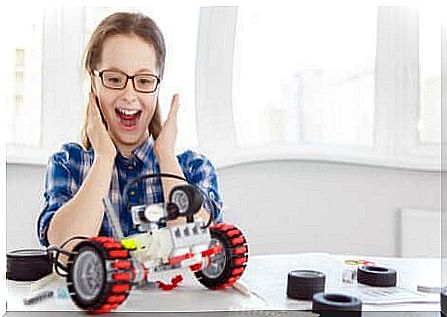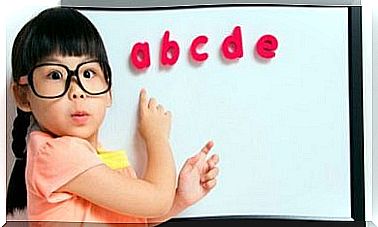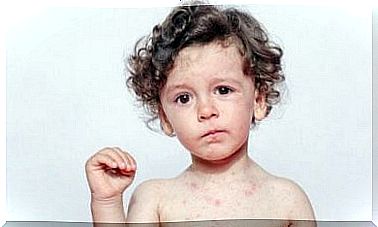Giftedness At School And During Childhood – Being Parents

Giftedness in childhood is a little-known subject. Many parents are in fact unaware that their child has this intellectual condition. Early assessment of a child’s abilities to determine whether or not they are gifted is essential to focus on developing their potential.
A child is said to be gifted when they have an IQ greater than 130. However, these children are difficult to detect because the student body is usually at or above this numerical range. In addition, in some cases, these children exhibit poor behavior and poor academic performance.
To avoid demotivation and boredom at school, it is necessary that parents of gifted children help them overcome this stage. Often, schools do not have the necessary staff to deal specifically with these children. This leads to poor academic performance as well as a low valuation or use of their potential.
Characteristics of giftedness in childhood, by age
Babies
- Great precocity in their learning.
- Quick interaction with their environment.
- Faster reactions to visual and auditory stimuli.
- Photographic memory.
- Premature language.
Giftedness during childhood
- They are very competitive and eager to be the best.
- They learn quickly and develop their abilities to the fullest.
- They are persevering children who like to express themselves when they are proud of them.

Teens
- Great cognitive ability.
- High level of reflection on the concepts of social, moral and cultural values.
- Need to share with older people.
- High self-esteem and confidence.
The adults
- Excellent performance at work. They are looking for good jobs and are generally specialized.
- They often remain isolated.
- Significant ability to solve problems of all types.
“Intelligence does not lie only in knowledge, but also in the ability to apply knowledge in practice”
– Aristotle –
How to highlight the capacities of gifted children?
These children have an above-average intellectual capacity. However, not all of them are super smart.
There are a large number of diligent and productive children who do not have such a high IQ. The best way for these geniuses to demonstrate their skills is through schoolwork and real-world problem solving.
On the other hand, these children need educational programs that help them develop their intellectual level to the maximum. There are many models that can harness their potential if applied with consistency and discipline. Here are two examples.
Speeding up or skipping a class
The objective of this educational model is to place the child in the school year and the class that corresponds to his level and not to his age. This usually happens in elementary school. Thanks to this possibility, the child will be able to enter a university earlier, continue his specializations, do postgraduate studies as well as master’s degrees.
In addition, thanks to this method, the cognitive abilities of the child will be assessed more rigorously. Therefore, he will have all the chances on his side to develop his talents in higher education.
Socially, this will avoid problems caused by differences in maturity with fellow students, as well as boredom in class.
This educational system also has its drawbacks. Indeed, by moving to the next level, the child will not have the maturity necessary to face the most difficult challenges of his age. This can have negative family and social consequences.

Support giftedness during childhood: usual school path
This is the most common model. The goal is to keep gifted children in the normal phase of education. They are then surrounded by children of the same age, express themselves and progress at a less accelerated pace, without hindering their knowledge and taking advantage of all possible resources for significant progress.
As an advantage, it is said that these children can perfectly be educated in heterogeneous groups, taking advantage of their skills and talents and being treated like their peers. Nevertheless, they may receive special attention or help with the aim of making the most of all their abilities.
The most important disadvantage is that in a regular class the child will just stand out and get the first place without putting in a minimum of effort. As a result, not all of the child’s skills may be used and developed as they should be.
In order to properly approach giftedness in childhood, it is necessary to assess the positive and negative aspects of each method used to educate children with high IQs.
Helping them to realize their full potential in the educational model that suits them best, without pressures or too high demands, should be the goal of parents and teachers. The idea is for children to demonstrate by themselves what they are capable of.









